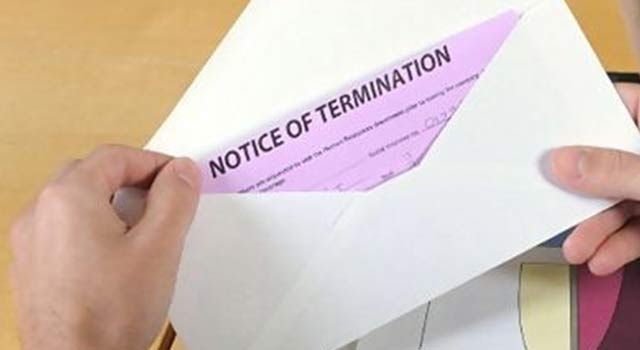My employee agreement stated that irrespective of the reason for my resignation, I would have to repay the joining bonus of Rs 1 lakh. I was not convinced that me resigning, and accepting all the terms as is, was the right way forward
A lot of people dread waking up in the morning and going to work. Not me. I loved my job. My job took me to different towns and villages, to solve some of the toughest challenges in the healthcare sector, especially in low-income areas.
I worked in India while most of my team worked out of the U.S. That meant erratic work timings and for some days of the week, I worked at nights, in order to collaborate with my team abroad. Things were going really well, and then a sudden change in the CEO, turned things upside down. A lot of the really good managers at the corporate executive level, including my own boss, slowly started to resign.
Breaking of the news and the shock
It was a Wednesday, the time of the week when we would have a review of all our existing partnerships. I joined the call only to find me and Christine, who had taken over in the interim as my manager’s replacement. After the initial exchange of greetings, she broke the news to me –
We had an internal review and I’m afraid that your position has been made redundant
There was a long pause and a silence from my end. I didn’t know what had just hit me.
Christine continued –
You have one week to hand over all your current projects to me. You’ll also need to submit a resignation letter as soon as possible for us to ensure that you have a smooth transition out
There was still silence from my end. I didn’t know what to say. I felt choked and the shock of what I had just heard made me freeze.
Do you have any questions?
asked Christine.
Not at the moment. I need some time to process this
I said trying to not sound like I was going to breakdown. The call ended, I shut my laptop and fell onto my bed. I didn’t want to talk to anyone about this yet. I felt a roller-coaster of emotions ranging from embarrassment to rejection and helplessness. I decided to sleep over it and think with a fresh mind the next day.
Analysing the implications
After I settled down a bit, I started to think of the practical implications of being laid off. My employee agreement stated that irrespective of the reason for my resignation, I would have to repay the joining bonus of Rs 1 lakh. I wondered why I was being asked to resign if, in reality, it was them laying me off. I had a word with the HR team. They confirmed that they would pay me three months basic salary after deducting the joining bonus. I tried to reason with them and stated clearly that I found this clause very unfair as I was not resigning of my own free will. I was being forced to resign, had too short a time to hand over, and this one clause clearly showed that I was being dealt a bad hand.
Seeking advice from loved ones
I was not convinced that me resigning, and accepting all the terms as is, was the right way forward. I discussed this with my parents, my then boyfriend and my closest friends. Everyone had mixed opinions about what to do next. Some told me straight that it was pointless starting a battle with a huge company, I wouldn’t stand a chance. Others said that since I had signed the contract and overlooked this clause, and did not anticipate it, I should not fight it. The best advice I got from someone was that I should seek legal advice. I had never faced a situation like this before, but I wanted to make sure I understood my rights, which would help me make my final decision.
The battle
I connected with a lawyer. He went through my contract and explained all the clauses to me. He made me aware that a contract is not set in stone and can be contested, especially if it appears to be unfair. He helped me write emails to the senior management and told me not to resign until they offered a fair and acceptable arrangement. As days passed, more pressure was mounted on me to resign. But I did not yield. It started with me writing to the senior management and ended with me finally writing to the new CEO.
Finally, after 7 days of email wars, I got a call from a senior manager who had worked closely with me on a project. His tone was not as condescending and he wanted to find a solution that worked well for me. We finally agreed that I would only pay 20% of my joining bonus back, I would hand in my resignation, and they would give me my letter of experience along with any other references I needed.
Impact on my mental health
Though the end result was in my favour, the whole experience of being laid off was traumatising. Deep down, I started to question whether or not I was good enough. It hit my confidence when looking for new jobs, and impacted my personal relationships too. Despite having moved on with the organisation, I found myself unable to speak with my ex-colleagues whom I shared a good bond with. I didn’t know how to break it to the world that I was “laid off” and so I told everyone for the longest time that I quit my job to focus on setting up my own start-up.
The fact that I hid the truth, and the stigma in my own head around being laid off still makes me very uncomfortable. We live in a society where failures are frowned upon, and somewhere I felt like I had failed miserably, for no real fault of my own.
Getting fired isn’t easy but in retrospect, it has taught me a lot about myself.
Here are four hacks that you may find useful when dealing with being fired/ laid off –
1. Know your Employee Agreement – A lot of us oversee this important element in the excitement and rush of landing a new role. It isn’t enough to read all contracts and agreements ourselves because we may be unable to identify or understand the loopholes and the nitty gritty ourselves. It helps to have the contract vetted by a lawyer before you sign it, and then share any concerns or questions you may have with the HR department of the organisation. This also gives them a sense that you care for and understand your rights and responsibilities.
2. Engage with your support system – It’s easy to go into a shell when you are fired/ laid off. This is when we need the people we are closest to, around us the most. Even if you don’t discuss the actual issue or seek help, just talking to people and confiding in them can be therapeutic. You do not have to deal with this alone.
3. Figure out your next move patiently – Similar to when a relationship ends, when one is laid off, it often leaves one or both parties sour. It’s only human to immediately jump into whatever’s next, irrespective of how mentally prepared we are for it. It helps to be patient and give yourself time to heal from the shock of losing a job. We may make bad decisions in haste. So it helps to take time and figure out what you want to do next, after carefully assessing what it is you want to get into.
4. Look after your mental health – Being fired/laid off directly impacts one’s self esteem. It is perfectly normal to feel negative when facing such a situation. It helps to invest time into taking care of your own mental health, by either seeking professional help or anything that works for you when you’re stressed.
This experience of losing my job taught me what type of work culture I would want to perpetuate when I start my own organisation. It has taught me that one is never too small to fight a huge corporation, despite what anybody else thinks. It also pushed me into figuring out how to earn a living by using all my skills and ultimately led me to becoming an entrepreneur for a good two years of my life – the time of my life that I would never trade for anything else.
For privacy reasons, the author has requested to stay anonymous.
This story is a real incident captured as part of the #Fired2FiredUp Campaign by YourDOST. Visit the page for more such stories and tips from career psychologists and recruiters.
Have you experienced a layoff recently? Are you finding it difficult to cope with it? Talk to an Expert at YourDOST.






